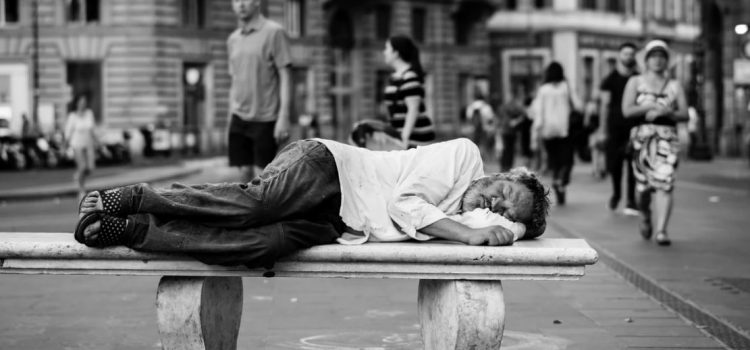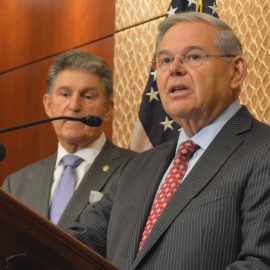
Do you want to keep the poor out of your neighborhood? Are you struggling to become a homeowner?
In Poverty, by America, social scientist Matthew Desmond addresses the link between housing and poverty. He argues that some public policies and personal choices exploit the poor. But, he says that we can turn things around and offer empowerment instead of exploitation.
Keep reading to understand Desmond’s argument.
Housing and Poverty: Exploitation
Desmond links housing and poverty, contending that the places we choose to live and the local rules we make are powerful contributors to entrenched poverty. Wealthier neighborhoods often pass zoning laws that prohibit the construction of multi-family houses and apartment buildings. Because these latter types of homes tend to be more affordable, these policies have the effect of locking poor people out of more affluent neighborhoods—trapping them in poor communities with generational poverty.
These policies also keep the supply of available and affordable housing low. This means they raise the cost of housing and protect the real estate investments of incumbent homeowners—another way that our lifestyle choices increase our material comfort at the expense of the poor.
(Shortform note: Desmond writes that exclusionary zoning laws prevent people from leaving poverty-stricken communities and settling in wealthier neighborhoods. But some critics have noted that he may be oversimplifying this issue. The Wall Street Journal review of the book argues that the poor may sometimes prefer to stay in their neighborhoods rather than move to areas with different demographics—even when there are opportunities to move to more prosperous areas. The review notes that many poor individuals choose to remain in their communities due to social and familial ties, even if these areas lack economic opportunities.)
Rents and Landlords
Desmond writes that one effect of these exclusionary zoning policies is to pack poor people—who are disproportionately Black and Latino—into pockets of poverty, often in urban slums. And those urban slums are often a gold mine for landlords who charge higher rents for dilapidated buildings and apartments compared to those in more affluent neighborhoods.
This is because landlords can extract every dollar out of old and inadequate housing stock by dividing them into smaller and smaller apartments for people who have no other option of where to live. The desperation and disempowerment of their tenants is what allows landlords to gouge them this way. Indeed, writes Desmond, in many parts of America it’s more profitable to be a landlord in a poor neighborhood than in a wealthy one. The situation has only gotten worse since 2000, with median rent increasing more than two and a half times—far outpacing inflation and the meager wage increases over that time.
(Shortform note: Desmond notes that landlords have gained increased leverage over tenants, which gives them the economic power to raise rents. But some data suggest that this trend may be reversing. The US rental market has seen a substantial increase in housing supply, with available units exceeding the demand. This growing supply of apartments, combined with a potential slowdown in demand, is putting downward pressure on rental prices. Some analysts predict that this oversupply situation may lead to rental rates either stabilizing or declining in the near future. However, the situation varies by region: Some markets may experience more significant declines in rental prices, while others with strong demand dynamics may remain stable.)
| The Rise of Rent Strikes In some cities, like New York, the skyrocketing costs of rent have led some tenants to organize rent strikes and protests to demand better protections and to address the unaffordability of housing. These tenants demand enhanced protections and advocate solutions to address the widening gap between incomes and housing costs. The collective actions of these tenants draw attention to the persistent challenges within the housing markets of high-cost-of-living cities, where escalating rents and gentrification have contributed to the ongoing crisis of housing affordability. The rent strikers argue that government intervention and the reinforcement of tenant protections are essential to ensuring that residents can continue to live without the constant specter of eviction. |
Housing and Poverty: Empowerment
To truly alleviate poverty, writes Desmond, it’s essential to go beyond providing financial assistance, although that’s undeniably important. He argues that to eradicate poverty, we need to empower the poor, granting them economic and political agency to shape their economic futures. Two of his proposed strategies relate to housing: creating paths to homeownership and ending exclusionary zoning policies. Let’s take a look at each.
#1: Create Paths to Homeownership
Desmond writes that homeownership can be a path to financial stability for many. However, as we’ve seen, people in poverty face significant hurdles along the path to homeownership—further perpetuating the cycle of poverty. One proposal, writes Desmond, is government guarantees of home loans for disadvantaged borrowers. This would help such borrowers bypass the banks (who, as we saw, see little profit in mortgages for affordable homes and are therefore less likely to issue those kinds of mortgages) and open the doors to generational wealth.
| Is Homeownership the Best Path to Financial Security? Some research suggests that homeownership is actually not a consistent path to generational wealth and financial stability. One study suggests that in certain circumstances, renting can be a more financially advantageous choice than owning a home. Based on data from 1983 to 2013, the study shows that when you consider the costs associated with homeownership, such as maintenance and property taxes, renting a home and investing the extra cash that would have gone into homeownership can lead to more substantial financial gains. In particular, homeownership does not necessarily guarantee appreciation in property value, which is crucial for generating wealth through real estate. Additionally, the study underscores the opportunity cost of using a large portion of your income to own a home when these funds could have been invested elsewhere (such as in stocks or bonds) for higher returns. |
#2: End Exclusionary Zoning
Desmond writes that providing people in poverty with the opportunity to move into wealthier neighborhoods has a demonstrable impact on their economic well-being. But, as we’ve seen, exclusionary zoning rules often create an impossible barrier. Abolishing exclusionary zoning rules (like bans on multifamily housing) and implementing mandatory inclusionary zoning rules (like requiring a certain proportion of multifamily housing) can break down that barrier. And, despite the fears of incumbent homeowners, affordable housing—when managed properly—does not negatively affect neighboring property values.
Desmond urges individuals to become anti-poverty crusaders in this regard by actively participating in local zoning or planning boards to help ensure affordable housing and integrated neighborhoods become a reality.

———End of Preview———
Like what you just read? Read the rest of the world's best book summary and analysis of Matthew Desmond's "Poverty, by America" at Shortform.
Here's what you'll find in our full Poverty, by America summary:
- Why the United States suffers from so much poverty and inequality
- How some Americans benefit from the poverty of others
- How we can empower the poor and eradicate poverty






